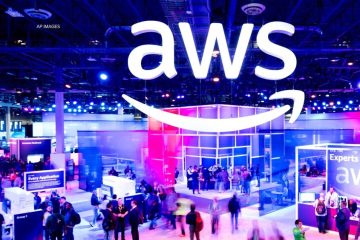Authors’ copyright case against Meta over AI training dismissed by US judge

A US judge has dismissed the copyright lawsuit filed by authors against Meta concerning the training of AI. A federal judge ruled in favor of Facebook parent Meta Platforms, dismissing a copyright infringement lawsuit filed by a group of authors who alleged that the company had appropriated their works to develop its artificial intelligence technology. The ruling issued on Wednesday by US District Judge Vince Chhabria marks the second decision within a week from the federal court in San Francisco, dismissing significant copyright claims brought forth by book authors against the swiftly advancing AI industry. Chhabria determined that 13 authors who litigated against Meta “made the wrong arguments” and dismissed the case. However, the judge clarified that the ruling pertains specifically to the authors involved in the case and does not imply that Meta’s utilization of copyrighted materials is permissible.
The legal representatives for the plaintiffs, a collective of prominent writers including comedian Sarah Silverman and authors Jacqueline Woodson and Ta-Nehisi Coates, did not provide a response to a request for comment on Wednesday. Meta did not provide an immediate response to a request for comment. “This ruling does not stand for the proposition that Meta’s use of copyrighted materials to train its language models is lawful,” Chhabria wrote. “It signifies solely that these plaintiffs presented incorrect arguments and did not establish a record to substantiate the correct one.”
While Meta succeeded in its bid to dismiss the case, this outcome may ultimately prove to be a pyrrhic victory. In his 40-page ruling, Chhabria consistently expressed concerns that Meta and other AI companies have become habitual copyright violators by utilizing books and other human-created works for their technology training. He appeared to be encouraging other authors to file cases in his court, structured in a way that would enable them to advance to trial. In addressing the issue of potential illegal conduct by companies that incorporate copyright-protected material into AI training models without authorization, the judge remarked: “Although the devil is in the details, in most cases the answer will likely be yes.”
Chhabria reiterated, “in many circumstances it will be illegal to copy copyright-protected works to train generative AI models without permission.” Consequently, companies will typically be required to compensate copyright holders to mitigate the risk of liability for copyright infringement when utilizing their materials. The judge dismissed claims that mandating AI companies to comply with long-established copyright laws would hinder progress in a vital technology during a critical period. “The technology is certainly groundbreaking,” Chhabria wrote. “However, the notion that unfavorable copyright decisions would halt this technology is absurd. These products are anticipated to yield billions, potentially even trillions of dollars for the companies engaged in their development. “If using copyrighted works to train the models is as necessary as the companies say, they will figure out a way to compensate copyright holders for it.”
On Monday, from the same courthouse, US District Judge William Alsup ruled that AI company Anthropic didn’t break the law by training its chatbot Claude on millions of copyrighted books. However, the company must still go to trial for illicitly acquiring those books from pirate websites instead of purchasing them. However, the process by which an AI system synthesizes information from thousands of written works to generate its own text is deemed to fall under ‘fair use’ according to US copyright law, as it is considered “quintessentially transformative,” as noted by Alsup.
Chhabria, in his Meta ruling, critiqued Alsup’s reasoning regarding the Anthropic case, asserting that “Alsup focused heavily on the transformative nature of generative AI while brushing aside concerns about the harm it can inflict on the market for the works it gets trained on.” Chhabria posited that a case for such harm can be made.
In the Meta case, the authors contended in court filings that Meta is “liable for massive copyright infringement” by appropriating their books from online repositories of pirated works and incorporating them into Meta’s flagship generative AI system Llama. Extensive and uniquely crafted segments of text, akin to those present in literature, serve as valuable resources for instructing generative AI chatbots in the nuances of human language patterns. “Meta could and should have paid” to acquire and license those literary works, the authors’ attorneys contended.
Meta argued in its court filings that US copyright law “allows the unauthorized copying of a work to transform it into something new” and asserted that the new, AI-generated expression produced by its chatbots is fundamentally distinct from the books on which they were trained. “After nearly two years of litigation, there still is no evidence that anyone has ever used Llama as a substitute for reading Plaintiffs’ books, or that they even could,” Meta’s attorneys contended.
Meta asserts that Llama will not produce the specific works it has replicated, even upon request. “No one can use Llama to read Sarah Silverman’s description of her childhood, or Junot Diaz’s story of a Dominican boy growing up in New Jersey,” its attorneys wrote. Accused of removing those books from online “shadow libraries,” Meta has contended that the methods it employed have “no bearing on the nature and purpose of its use” and that the outcome would have been identical had the company opted to negotiate with actual libraries.
Such deals illustrate the method by which Google constructed its extensive online Google Books repository, now encompassing over 20 million titles. However, this endeavor was not without its challenges, as the company endured a decade of legal disputes, culminating in the 2016 decision by the US Supreme Court to uphold lower court rulings that dismissed copyright infringement allegations. The authors’ case against Meta compelled CEO Mark Zuckerberg to undergo deposition, revealing internal discussions within the company regarding the ethical implications of utilizing pirated databases that have consistently drawn criticism.
Nikki Bailey
Nikki Bailey reports on US Stocks. She covers also economy and related aspects. She has been tracking US Stock markets for several years now. She is based in New York








